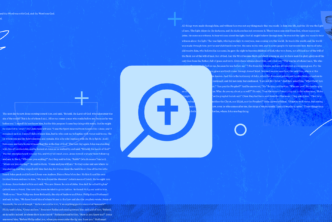Some things just make life much easier. Air conditioning. Dish washers. Indoor plumbing. We often forget how difficult life can be without them. I’m here to give you some helpful tips on making your seminary work much easier. Now, seminary can have many difficulties and requires hours of reading, writing, studying, and researching. There is no easy, fast way to learn your Greek vocabulary. However, I have discovered certain things that have made my work at seminary much more productive. I wish I had known about all three of these things before I got started.
1. A Good Bible Software. Modern Bible softwares can perform tasks that seminary students from twenty years ago could only dream about. My favorite part of these softwares is the ability to search the Greek or Hebrew text.
This seems pretty basic, but imagine the difficulty of searching for a Greek word in a lexicon and trying to look up every verse in your Greek text. Instead, use software. For example, I want to see if the word “church” (ekklēsia) occurs in the Gospels. My search reveals it only occurs three times in the Gospels. I could then search the Septuagint (Greek Old Testament) for the word ekklēsia and find out it occurs 100 times. All of this took about 5 seconds.
These programs can also store commentaries and practically any other biblical resource available. Of course these resources cost money, but they are worth buying. Also, these programs are available on devices like iPads and iPhones. Imagine having all your commentaries available on your iPad.
One of the best Bible softwares out there is Logos Bible Software. You’ll be amazed by everything it can do. In addition to being a good program, Logos offers free, online training tutorials on how to use it.
My school, Dallas Theological Seminary, even provides a free Logos package (containing many resources) to all of its students. Don’t start seminary without a good Bible software like Logos.
2. Endnote Software. Writing is one of the primary tasks for seminary students. I remember a few times during seminary when I had to knock out a few ten or twelve page papers in a day. With all the writing required at seminary, it’s important to be prepared and make writing as simple as possible. This is where Endnote comes in.
Endnote is a computer software that allows you to store all your bibliographical information and much, much more. When writing a paper, you must use sources and reference material (e.g. commentaries, lexicons, journal articles…etc). You need to reference these resources in the footnotes of your paper and in the bibliography at the end of your paper. The more the merrier. The difficulty is that your references have to be properly formatted, usually according to Turabian format.
Fortunately, Endnote will automatically do this for you. It knows how to properly cite your references and can even sync with Microsoft Word to insert your references when needed. Also, Endnote will allow you to store PDF articles.
Most schools have access to an online database where students can download almost any journal article. Once you download an article, you can store it in Endnote and then Endnote will properly cite the article for you in your paper.
Endnote even has an iPad software so you can annotate and highlight your PDF articles. The current student price for Endnote is $113.95. Endnote is currently offering a 30-day free trial so you can see how it works. The time (and headaches) this program will save you will easily pay for itself.
3. SBL Handbook of Style, 2nd Edition. In November 2014, the Society of Biblical Literature recently updated their well-known Handbook of Style. This is a must-have resource for seminary students. I didn’t get this book until the start of my last semester at seminary, but since getting it, I have kept it right next to me on my desk while writings papers.
The best part about the book is that it is geared solely towards students of the Bible and religion. One very helpful feature is that is has pages and pages of how to properly spell/capitalize frequently used terms.
For example, when referring to the good news about Jesus, “gospel” should not be capitalized. However, when referring to one of the first four books of the New Testament, “Gospel” should be capitalized. It also shows how to properly transliterate different languages. I find this very helpful for Hebrew since it is often difficult to type Hebrew into Microsoft Word.
It also shows how to properly cite ancient sources. For example, it lists the works of Josephus and Philo and how to properly cite them in the footnotes and bibliography. These are just a few of the sections in the book that I keep turning to over and over. The book is currently $36.42 on Amazon. This book is truly a gem.
While these resources won’t do all your work for you, they will improve your productivity, research abilities, and overall quality of work. Don’t get caught without these seminary essentials.
By Cameron Sapaugh. Cameron lives in Dallas, TX with his wife Kellie. After graduating with a degree in Mechanical Engineering from Texas A&M, he headed off to Dallas Theological Seminary. He is currently in his last semester of the ThM program and hopes to pursue doctoral studies in New Testament in the fall. He enjoys photography, basketball, reading, writing, and windsurfing.




